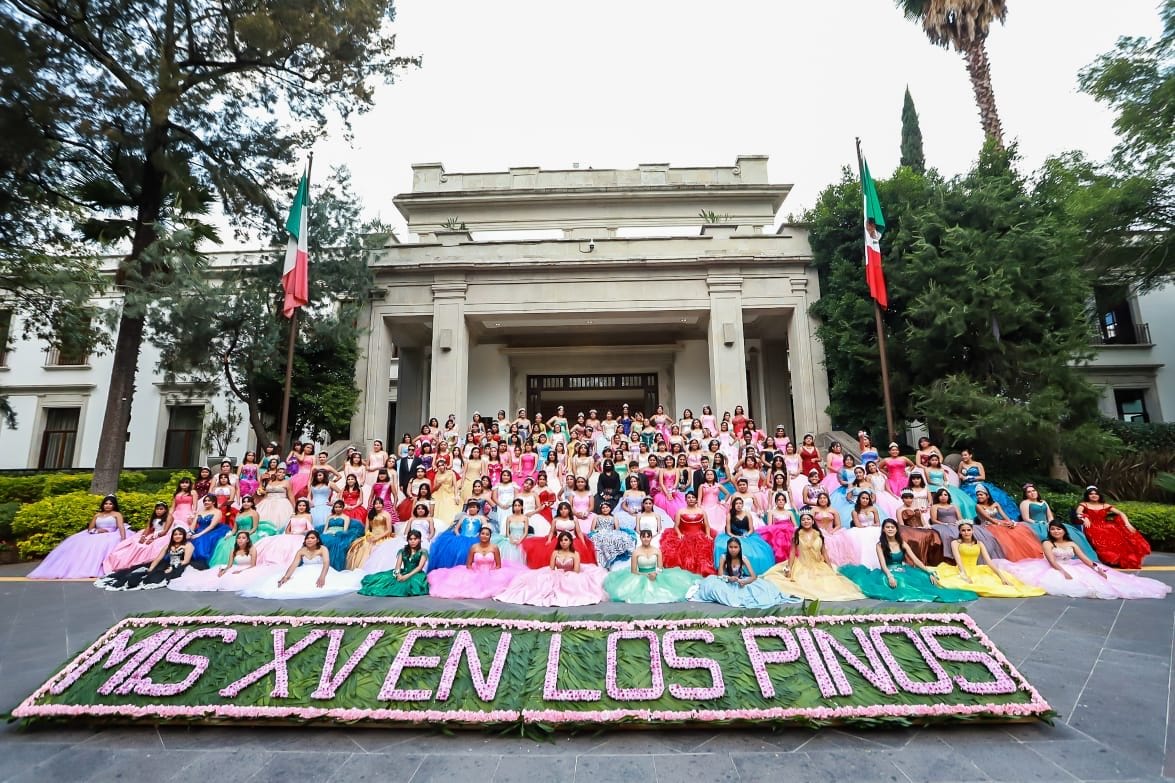La Semana: June 11, 2023
Let the games begin
Welcome to a Sunday news round-up edition of The Mexpatriate.
The last time Mexico and the U.S. both elected new presidents in the same year was back in 2012—seems like a historical epoch has passed in between—which, in case it feels too remote to recall, brought the PRI’s Enrique Peña Nieto to power, and Barack Obama’s second term.
A week after the gubernatorial elections in Mexico state and Coahuila, the national conversation here has pivoted swiftly to 2024. Mirroring the parade of contenders announcing their bids north of the border, the aspiring candidates to succeed López Obrador have started warming up.

It was a dark and stormy night…
… and President López Obrador summoned Morena’s leadership to dinner.
On Monday, after Delfina Gómez’s victory in Mexico state’s election, AMLO celebrated with Gómez and other Morena governors, as well as the “corcholatas” (candidates vying for the 2024 nomination) at a restaurant in downtown Mexico City. Rumors spread about what exactly AMLO told the aspiring candidates, but the effect was soon evident.
On Tuesday, Secretary of Foreign Affairs Marcelo Ebrard announced he would resign his position effective June 12 in order to dedicate himself to winning Morena’s presidential nomination. It was a bold move, giving Ebrard a splash of media attention and putting pressure on the other “corcholatas”—Claudia Sheinbaum (mayor of CDMX), Ricardo Monreal (Morena leader in the Senate) and Adán Augusto López Hernández (Secretary of the Interior)—to do the same.

Monreal has since stepped down from his position, as has Gerardo Fernández Noroña, a Labor Party (PT) congressman who wishes to enter the fray. Manuel Velasco, former governor of Chiapas and senator from the Ecological Green Party of Mexico (PVEM), also announced his resignation on Wednesday.
Sheinbaum, who is the current favorite to win the nomination, will have to resign her position this week, according to the protocols established by the Morena national council today in Mexico City. López Hernández told the press today while on an official visit to Nayarit that this is his “last Sunday as Secretary of the Interior.”
Following their party meeting today, Morena confirmed it will choose its candidate via a national poll, which Ebrard has stressed should be “transparent and verifiable.” The poll will be performed between Aug. 28-Sept. 3, and on Sept. 6, Morena will publicize the results. The opposition coalition, Va por México (PAN-PRI-PRD), will announce no later than June 26 the method they will use for selecting a candidate for 2024.
May the odds be ever in your favor, políticos.
Negotiating with narcos
Can a truce be made with drug cartels? Can a state permit or advocate direct negotiations with organized crime to reduce violence? These questions have been circulating in the national conversation in recent weeks, spurred by a missive addressed to ten national criminal groups (including the Sinaloa cartel, the Gulf cartel and the Cartel Jalisco Nueva Generación), and signed by Delia Quiroga, a spokeswoman for one of Mexico’s many search collectives, Las Madres Buscadoras de Sonora, or the Searching Mothers of Sonora.
The letter makes uncomfortable reading, not only because the words transmit the profound pain of so many Mexican families whose loved ones have vanished—Quiroga’s brother Roberto disappeared in Reynosa in 2014—but also because it seeks to connect with and inspire empathy from the perpetrators. “We have something in common,” she writes, “we are abused by our government … all we want is to know what happened to our missing family members, and if they are dead, that they may be given a dignified burial to honor their life in this world.” Quiroga proposes that representatives of the groups sign a “social pact to prevent and eradicate disappearances in Mexico and promote peace.”
AMLO stirred up a fuss when he said at a May 30 press conference that he “agreed” with the proposal, adding that “I approve of everything that means setting aside or not using violence.” However, a few days later, he walked this back a few steps, saying that his government is not seeking to make a pact with criminal groups, and that “the responsibility lies with the Mexican state to guarantee peace, tranquility, and we cannot abandon that.”
In a column for Sin Embargo, professor and researcher Carlos Pérez Ricart made an argument to “listen” to the search collectives, noting that: “In the end the question is not whether it is politically or ethically possible to negotiate with criminals. This already happens and will continue to happen. The question, in this case, is if we will bring ourselves to have a conversation about doing it right, with sensible goals, clear agendas and established procedures.”
Looking for a silver lining on the rule of law
Mexico’s global ranking on The World Justice Project’s rule of law index is 115 of 140, putting it in the bottom fifth of countries globally, and its score has been slowly descending since 2015. That’s the bad news.
But in a press conference held on Tuesday, the NGO released its state-by-state index of the country for 2022-23 and noted that “six Mexican states show real progress on rule of law is possible.” The index uses 42 metrics to assess constraints on government power, absence of corruption, open government, fundamental rights, order and security, regulatory enforcement, civil justice, and criminal justice.
The most-improved states were Querétaro, Sonora, Baja California Sur, Guanajuato, Sinaloa and Tamaulipas. The lowest-scoring included Guerrero, Mexico City, Quintana Roo and Mexico state.
While the researchers conclude that “rule of law performance is largely stagnant in Mexico”, they did highlight that order and security scores and civil justice effectiveness have improved in two-thirds of the states.
Hope springs eternal for the vaquita
In a rare gem of good environmental news, the joint expedition launched in May by Sea Shepherd and the Mexican government in the upper Gulf of California has reported sighting more of the critically endangered vaquita porpoise than they expected. They reported spotting 10-13 specimens, and one newborn calf, making this the “most encouraging news ever of human intervention to save vaquitas” according to scientist Barbara Taylor, who led the expedition. Based on the steep decline in the little porpoise’s numbers in recent years, many had anticipated the species would be extinct today.
The team also trained local participants on how to survey the population of the elusive vaquita, the world’s smallest cetacean. In the appendices to the survey report, they note: “one of the greatest joys we experienced on this year’s survey was seeing trainees who had grown up in fishing families of San Felipe see vaquita for the first time with their own eyes. Their joy, tears, and excitement are contagious.”
“Useless workers” of Latin America unite?
The Economist published a story this week titled “Why are Latin American workers so strikingly unproductive?”, with an eyebrow-raising subheading: “A land of useless workers.” This has since been edited to say “A land of frustrated workers”, following an online backlash.
While I’m not usually one to jump aboard the outrage train, I have to say this seemed a remarkably obtuse choice of words. As the analysts at Latinometrics put it in a very civilized Tweet:
“The Economist called Latin America a ‘land of useless workers’ this week. Though we understand their focus on stagnating productivity figures, we would've used a more positive tone in addressing the region, focusing on opportunities that rally people behind a cause instead of angering them. Perhaps: ‘The Untapped Potential of LatAm's Workers.’”
The editor’s note added to the story on June 9th explains: “Our aim is to draw attention to the structural causes of low average labour productivity in Latin American countries, including powerful oligopolies that mute competition and a large informal sector which forces many businesses to remain subscale.”
The structural issues pointed out in the article, such as lack of educational opportunities and labor informality, are certainly problematic for the region and have worsened since the pandemic. But the story doesn’t take into account other broader systemic and historical reasons there may be differences in “productivity”—which is described in the article itself as “fiendishly difficult to measure”.
Mass “quinceañera” party in Los Pinos
The government invited 155 young women to celebrate their 15th birthdays at Los Pinos, the former presidential residence that is now a cultural center.
If you enjoy the colorful genre of quinceañera photography, check out the photos and videos shared to the Secretary of Culture’s Twitter account.
Thank you for reading, and please comment below or send me your thoughts: hola@themexpatriate.com.






Thanks for sharing your perspective and monitoring the pulse
of México.
Keep the passion for what you do. Your eyes become ours thank you. HS